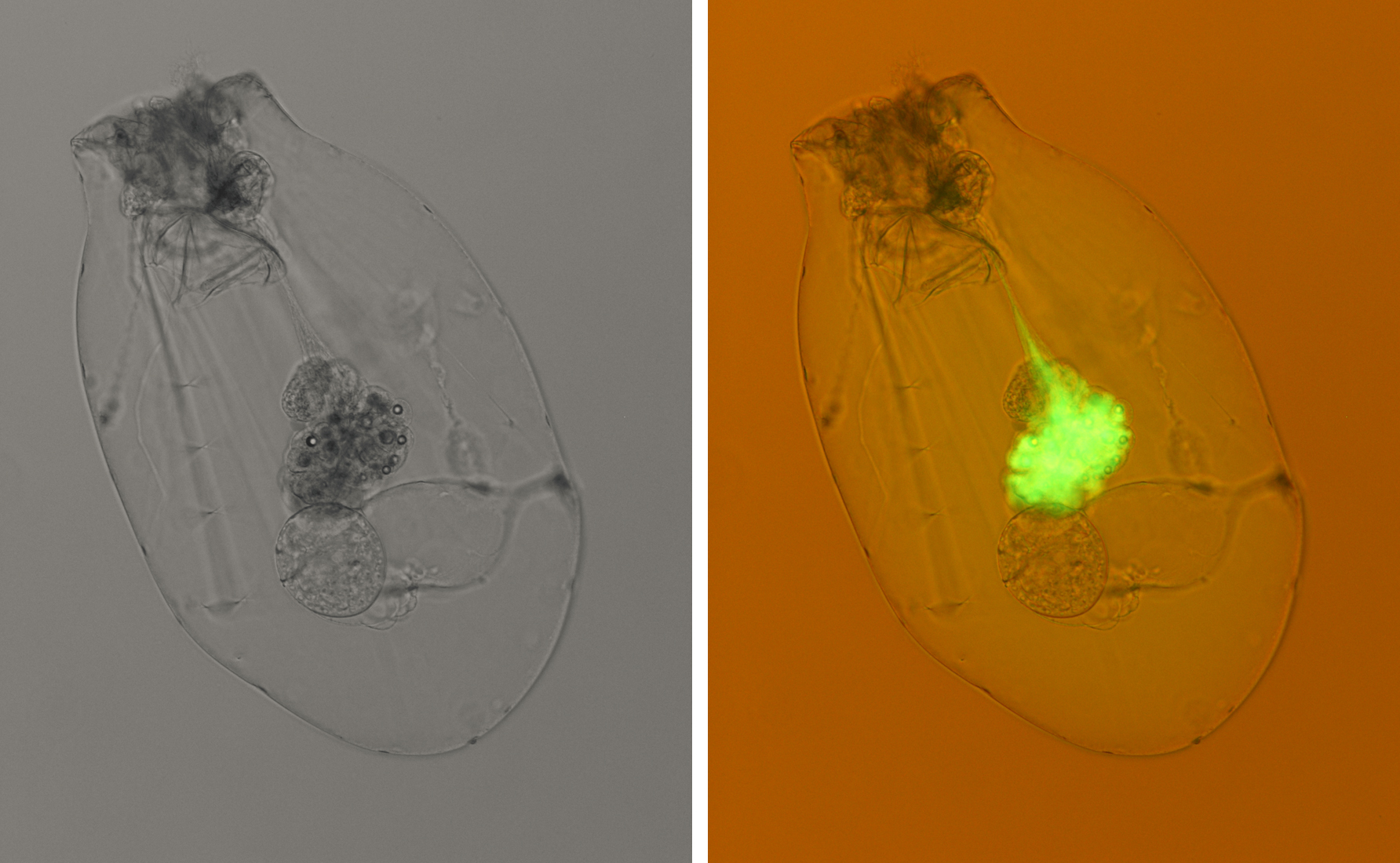Our Basic Experiment
Our experimental approach is quite simple – we will let our animals show us whether they transport viruses into their digestive system by drinking and digest and ultimately absorb these organic particles. Rotifers will be incubated in water containing viruses tagged with a fluorescent molecule. At the end of the incubation, the rotifers will be relaxed and quickly washed, and, using different forms of microscopy, the occurrence and distribution of the fluorescent label within rotifers will be evaluated.
The set of images images shown above with the project title represent the results of such an experiment completed by Stephanie Ross (a former undergraduate research student at Illinois Wesleyan University) where specimens of the freshwater rotifer Asplanchna priodonta were exposed to a fluoroscein-labelled carbohydrate for three hours. The three images represent a transmitted light image (left), an image showing the fluorescent label (middle), and an image which is a mixture of both forms of microscopy of the same specimen.
The images below show a transmitted light image (left) and an image showing the distribution of the fluorescent label in the same specimen of Asplanchna priodonta exposed to a protein labelled with a fluorescent molecule. The fluorescence was localized in the stomach and is found within the main body cavity.

In both cases, the fluorescent molecule that was initially present in the water is readily detected within the digestive system of the rotifer (green fluorescence). Thus, these rotifers drink. There is a difference in the distribution of the green fluorescence within the rotifers' body that exists between animals incubated with a labelled sugar or a labelled protein. This difference occurs because the carbohydrate molecule cannot be broken down, but the labelled protein can be chemically digested.
- Published on Feb 13, 2016
- 34 views
- 0 comments
- Print this page
- Back to Methods